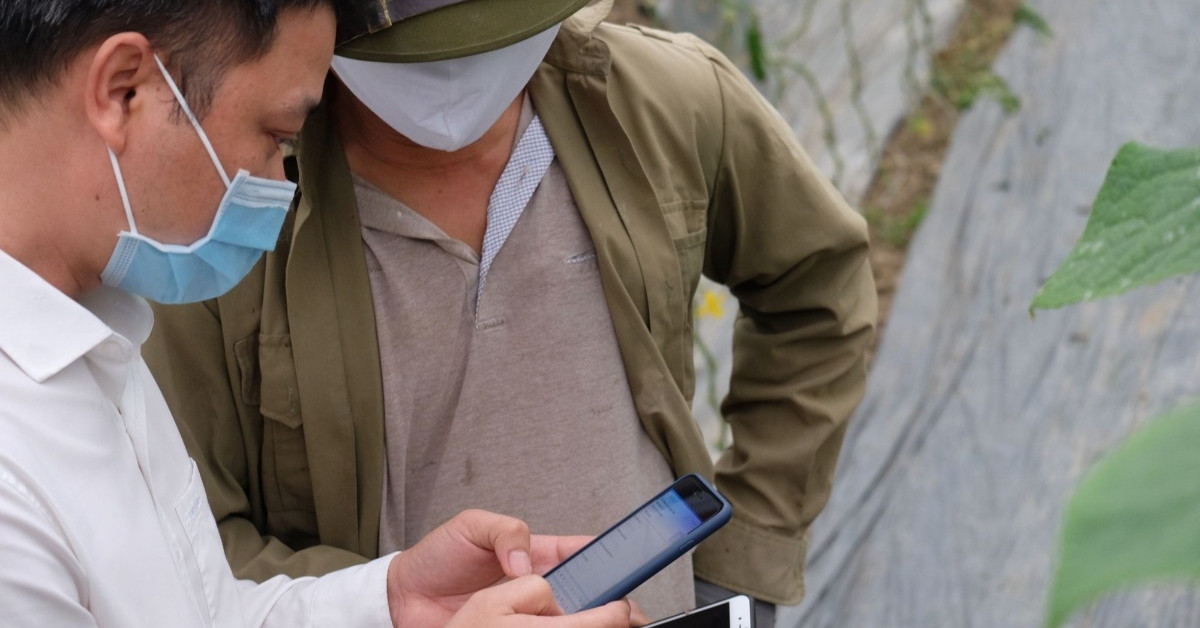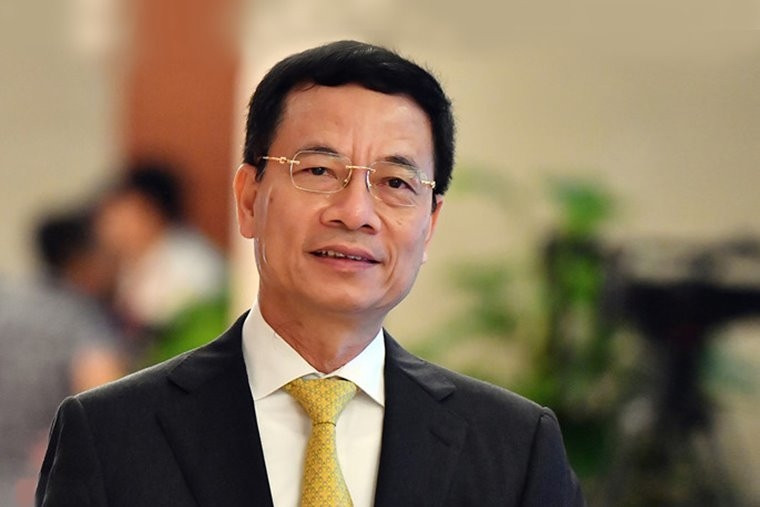Full text of Minister Nguyen Manh Hung’s speech on state-owned enterprise innovation
Below is the full text of the speech of the Minister of Information and Communications Nguyen Manh Hung at the National Online Conference with State-owned Enterprises on March 24, 2022.
Dear Prime Minister, Comrade Deputy Prime Ministers,
Dear comrades, members of the Party Central Committee, leaders of central and local departments and ministries,
Dear comrades, leaders of state-owned enterprises, comrades attending the Conference,
I would like to make some comments on the development of state-owned enterprises as follows.
First, a socialist-oriented market economy is a combination of market power and state power, a combination of a strong market and a strong state, and state-owned enterprises are a specialty of business. socialist-oriented market economy. It is an important material force to take the lead in implementing national strategies, and an important pillar and support for the Party and State to revive the country. National strategies are often long-term, but markets are often strong in the short-term, so the state must be strong in the long-term. State-owned enterprises (SOEs) are the physical force for the state to implement long-term strategies. To implement the national strategy, SOEs must be large enough, therefore, they should be big and small. Recently, we have not properly emphasized the leading role of SOEs in implementing the national strategy.
Second, based on the overall national strategy, the State must assign tasks, set high goals, and create challenges for SOEs. If the State has an army, it must arrange the army for the whole army, but it must be concentrated to create a synergistic effect. This cannot be distributed. Currently, again, businesses propose their own strategies and plans, often from the perspective of the business, its own interests, and often without challenges to be safe. And also because the goals are not high, there are not many challenges that SOEs have not developed commensurately, and there are few outstanding SOE leaders. What needs to change is that, when the Government holds large SOEs in the hand, it must assign tasks according to the national strategy, high goals and must create challenges, creating the leading position of SOEs in green development, economic development and sustainable development. digital, on governance and technology, on self-reliance and international integration, and especially on digital conversion (CBS).
College is both a new development space, a new business model and a new way of management. The National Steering Committee on Colleges, with the Ministry of Information and Communications as the standing body, is leading the national unions, including corporate colleges. The Ministry of Information and Communications will soon propose to the Prime Minister a merger strategy for SOEs.
Third, businesses are profitable by accepting risks. Zero risk, zero return. But now, the owner’s representative, inspection, and re-inspection are more focused on a particular risk. Businesses that fight 10 matches, 7 win 3 lose, overall win, are still considered 3 losers. And this is the main fear of SOEs. This fear makes SOEs not dare to take risks, always choosing the safest one. For a business, the safest is often the most insecure from a growth perspective. What needs to change is, not evaluating SOEs on a project-by-project basis, but on the whole. If we do not change the way SOEs are evaluated, they will not create SOE development, SOEs will continue to have low growth rates like now to be safe. The data shows that the growth of SOEs in the period 2016-2020 is much lower than the GDP growth of the country, which means that the SOE sector is shrinking.
Fourth, innovation is the activity with the highest risk. SOEs are poor in innovation because of the fear of risk. If we can solve the above evaluation story, we can also solve the innovation story of SOEs. In addition, innovation is also related to investment in research and development. Science and technology research funds of SOEs are being managed as budgetary money. If the management of this fund is not soon changed in the direction of research that is a high-risk project, this money will still be there and businesses will not dare to use it. And in fact, this fund is deducted up to 10% of pre-tax profits, but currently used only around 1%, ie only used about 1/10.
Fifth, the State strictly manages SOEs largely because they are afraid to see them, and because they are afraid, they should cut them down. If the State builds a comprehensive monitoring system for SOEs, that is to say, the State will release more to SOEs. Therefore, the Government should require SOEs to digitally transform, in the immediate future, bring all management activities of SOEs to the digital environment, and connect online to state management agencies, to the owner’s agency, about inspection, examination and auditing agencies, for monitoring, evaluation, early warning and early reminder. At that time, the State will feel secure because it will see it, also because it will give more rights to businesses, businesses will be warned early to fix it, reduce accidents, and protect officials.
Sixth, the value created by the enterprise is due to capital and labor. The value-created model, i.e. profit before tax and before salary, is divided into two parts, one part is for the corporate salary fund, the other part is for the State, for example, Viettel is contracted at 20% for the company. salary fund. It is a bit like the fact that employees own 20% of enterprises, this is a very strong motivation for SOEs to increase production and business efficiency. This is also a way of equitization without equitization. This model has been effective for Viettel for 10 years now. The government may allow this model to be extended to other SOEs for evaluation.
Seventh, domestic and foreign enterprises need to be equal. In the first stage of opening up, we gave many incentives to foreign investment, for foreign enterprises, sometimes to the point of reverse protection, difficult for domestic enterprises, easy for foreign enterprises. After 35 years of renovation, it’s time to give more importance to the domestic market, to value self-reliance and domestic enterprises, so it is necessary to ensure equality for domestic and foreign enterprises. We should pay more attention to domestic enterprises, including SOEs. Nurturing and developing domestic enterprises is a long and difficult story than attracting foreign investment, so the state’s hand is needed. We need to change from the way we do the West and then the West hires us as a subcontractor to the one we hire and then we hire the West to do the parts that we haven’t been able to do. Vietnamese businesses can only grow up when they assign them big projects.
Eighth, SOE management should avoid jumping from one pole to the other. In terms of business, sometimes it’s too multi-sectoral, sometimes it’s too mono-industry, making SOEs run out of space for development. In terms of organization, sometimes SOEs give birth to children too comfortably, sometimes even setting up a center has to go to the Prime Minister, making SOEs no longer flexible. Regarding capital, sometimes 100% of profit after tax is left to increase capital, sometimes it is limited to increase capital. Therefore, policies for SOEs need to be gradually adjusted. Listening carefully to SOEs, doing scientific analysis, in general, should not be in a hurry to make major policy changes because of an accident.
Thank you very much!
Minister Nguyen Manh Hung
at Blogtuan.info – Source: vietnamnet.vn – Read the original article here



